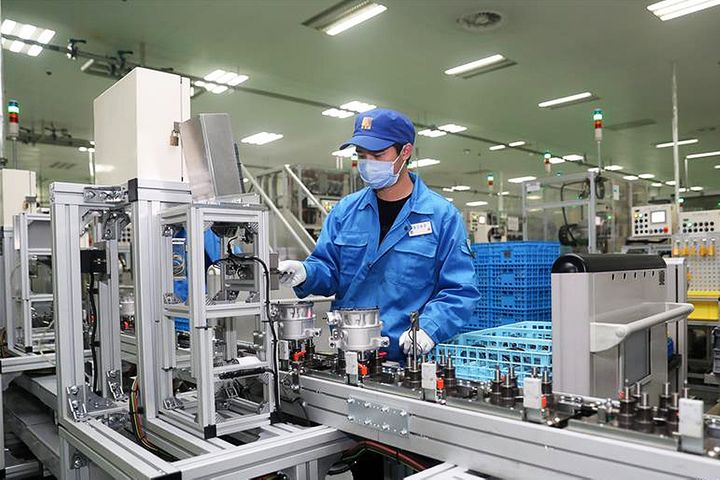 Quarter of AmCham China Firms May Be Running Normally by April-End, Survey Shows
Quarter of AmCham China Firms May Be Running Normally by April-End, Survey Shows(Yicai Global) March 25 -- Nearly a quarter of the companies that are members of the American Chamber of Commerce in China expect to be back up and running by the end of April, according to a flash survey by the body.

Twenty-two percent have already resumed normal operations, and 40 percent said they will maintain previously planned investment levels, the results of the survey released today showed. Another 22 percent expect further delays through the summer.
"Our member companies are still wrestling with challenges brought by the epidemic, and there's now concern about the global impact," AmCham China Chairman Greg Gilligan said. "But the views aren't all grim."
The latest survey was done between March 13 and March 18, with 119 members joining to evaluate the impact of the Covid-19 outbreak on their business.
Covid-19 has become a global pandemic since a February survey. When asked about the additional impact this would have on their China operations, about 45 percent of both technology and service sector firms said they expected a moderate-to-strong additional impact. About 42 percent of resource and industrial companies said it was too soon to evaluate the impact, while 63 percent of consumer firms expect some effect.
Half of the respondents said it was too soon to determine Covid-19's impact on their long-term (three to five years) business strategy in China. A third said there would be no effect.
About 40 percent said they would stick to their investment plans, up 17 percentage points from last month's survey. One-third said it was too early to figure out the effect on planned investments.
Big firms are more motivated to invest. Roughly half with more than 250 employees said they will keep to their planned investments. Among those with fewer than 250 staff, only 19 percent would and 45 percent said they will cut them.
Return to Normal
Nearly a quarter of respondents said that all of their staff continue to work from home as of March 13. Thirty-five percent reported over half of their staff were back in the office.
Compared by region, respondents' employees based in North China were most likely to still be working from home. A total of 34 percent respondents with manufacturing facilities in Hubei province, the epicenter of the outbreak, and neighboring provinces said that all staff continued to work remotely.
Forty-six percent of respondents with fewer than 250 employees said that all staff were still home based.
SME Reliance
Given the significant impact of the outbreak on small- and medium-sized enterprises, 81 percent of the respondents said China's SMEs contributed up to half of their annual revenues. Eleven percent said that 75 percent or more of their supply chain was reliant on SMEs. A quarter reported a "moderate reliance" (25 percent to less than 75 percent).
Nearly one-fourth of resource and industrial sector respondents indicated that their supply chain was strongly reliant (75 percent or more) on SMEs; the technology sector supply chain was the least so, with two-thirds reporting "minimal reliance" and none reporting "strong reliance."
The supply chains of large companies with more than 2,000 employees were least likely to have a "strong reliance" on SMEs in China.
Regarding support from the US government, the survey said companies would like to receive commercial support, including advice on business opportunities, help understanding Covid-19-related business policies and guidance on implementation of the China-US trade deal's first phase.
The pandemic has spread to over 100 countries and regions, which will inevitably affect cross-border investment and shrink worldwide direct investment, according to Ye Wei, an official with China's commerce ministry.
Transnational direct investment is expected to fall 5 percent if the epidemic is brought under control by June, or by 15 percent if it runs through the whole year.
Editor: Peter Thomas